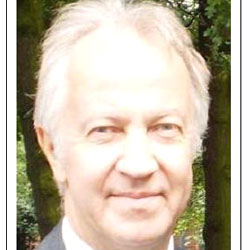Where to find the Olympic votes which matter . . . – Keir Radnedge
January 26, 2013
Bidding to host any event – major or minor – is complex enough without knowing that the ultimate decision will not be taken on a democratic vote of the organisation involved.
This is the added twist which renders ever more complex all analysis over which bid officials from Istanbul, Madrid and Tokyo will be laughing or crying in Buenos Aires on September 7.
That is the crucial date on which Turkish, Spanish and Japanese eyes have been focused ever since the executive board of the International Olympic Committee discarded Baku and Doha to narrow down the candidacy field last May.
Olympic bidding involves a myriad of activities from event planning to self-promotion at home and abroad to political reassurance to guarantee confirmation to private persuasion.
Then there are the presentations . . . and the final vote. This will be taken during the IOC’s week-long stay in Buenos Aires for its 125th Session [congress].
The full body of IOC members will vote but this does not mean that the full body of the Olympic movement has a say in the destination to which they must all travel in July 2020.
The IOC boasts 204 national Olympic committees from Afghanistan all the way through the alphabet to Zimbabwe.
Only an eye-opening 74 of these have votes, however. Just under two-thirds are disenfranchised.
This is because (according to its own website) the IOC comprises 101 active members but 18 countries have multiple memberships; Switzerland tops the class with five followed with Great Britain on four then Italy, Russia, Spain and the United States all on three.
Narrow this down to regions and Europe has 41 active votes (IOC president Jacques Rogge will not cast his own), Asia 23, the Americas 18, Africa 13 and Oceania five.
‘Persuasion’ strategy is crucial for Istanbul, Madrid and Tokyo. Not only do they need to convince the upper-class elite (i.e., the IOC voters) of their own superior credentials in the here and now, they must beware competing ambitions ahead.
Hence Istanbul and Madrid will worry that the potentially crucial seven votes of France, Germany and Italy could easily ‘escape’ to Tokyo because all three countries are considering bids for 2024 – and the last time the summer Games went to a second successive European city was back in the prehistoric days of 1952, Helsinki following London].
The IOC is blessed with so much hosting interest it can spread its wings around the world.
Football’s experience with the 2010 World Cup in South Africa proved that, with the application of enough money and expertise, major sports events can be staged successfully just about anywhere on the planet.
The trick, on September 7, will be winning over only those countries whose votes count.
Keir Radnedge has been covering football worldwide for more than 40 years, writing 33 books, from tournament guides to comprehensive encyclopedias, aimed at all ages.
His journalism career included The Daily Mail for 20 years as well as The Guardian and other national newspapers and magazines in the UK and around the world. He is a former editor, and remains a lead columnist, with World Soccer, generally recognised as the premier English language magazine on global football.
In addition to his writing, Keir has been a regular analyst for BBC radio and television, Sky Sports, Sky News, Aljazeera and CNN.
He edited a tournament newspaper at the FIFA World Cups of 1982, 1986 and 1990 and has scripted World Cup history and other football films. He runs his own website, concentrating on sports politics and business, at www.KeirRadnedge.com [Also see KeirRadnedge @Twitter]
{jComments on}


